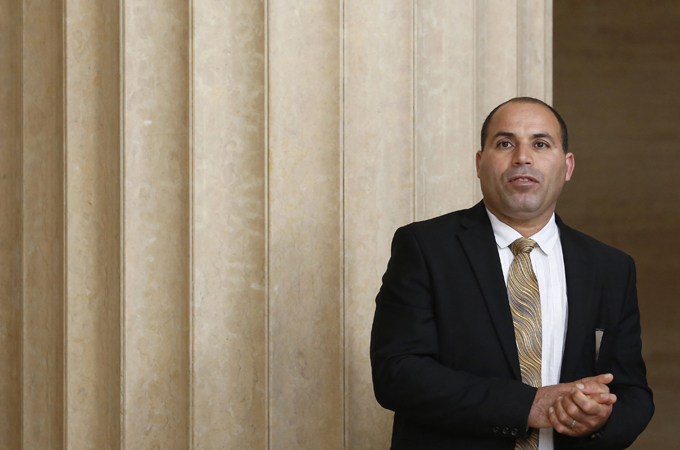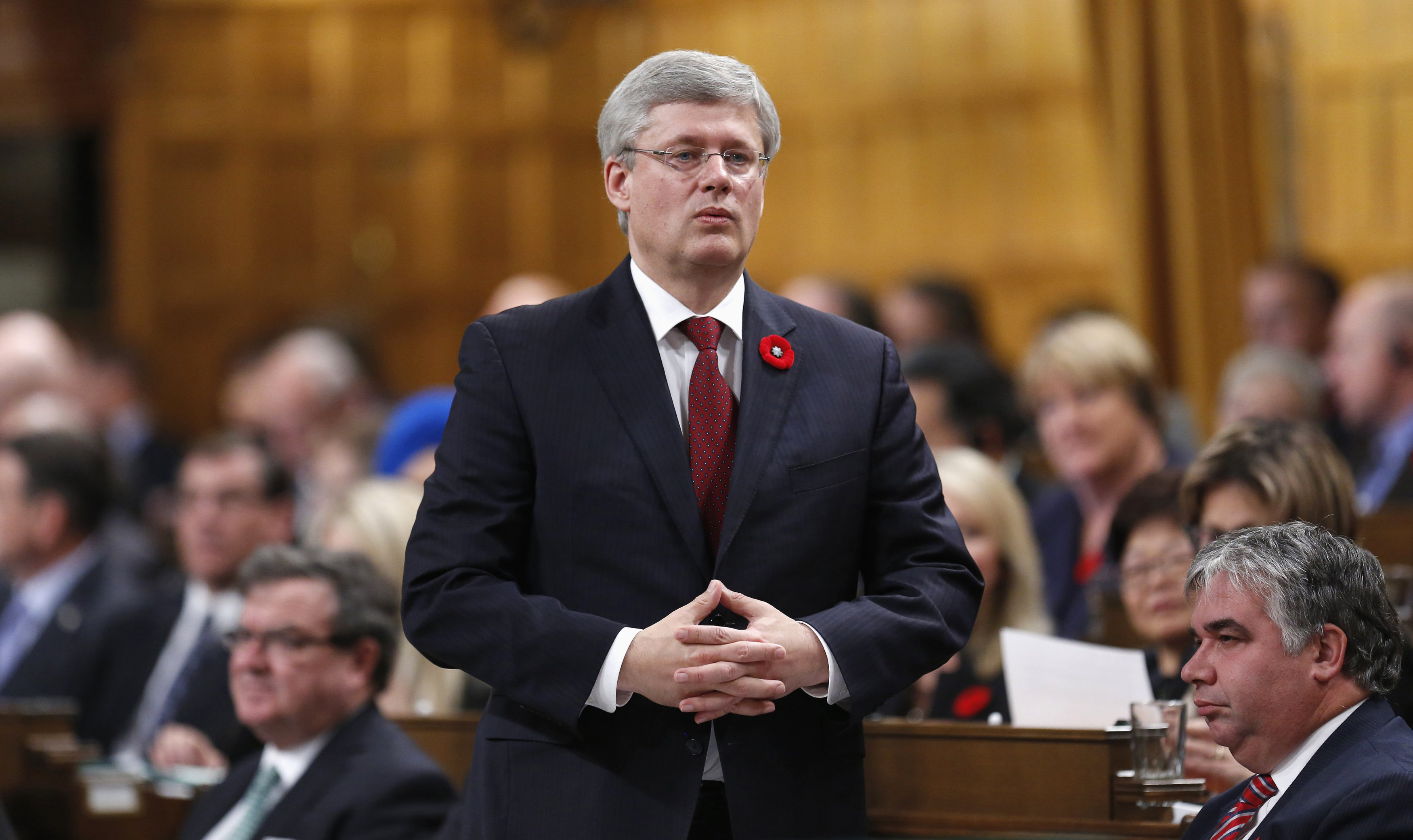‘Security certificates’ ruling ignites debate
Mohammad Mahjoub has fought for 13 years against a Canadian security certificate.

For 13 years, Mohammad Mahjoub has been living in uncertainty.
And after a Canadian federal court judge ruled last month to uphold the government’s stringent restrictions on the Egyptian-born father of three, his fight appears to be far from over.
“Here, the denial of a fair trial constitutes a violation of fundamental justice,” Yavar Hameed, Mahjoub’s lawyer, told Al Jazeera via email.
“Being 13 years under oppressive conditions, some of which until very recently were the strictest bail conditions in Canadian history, Mr. Mahjoub continues to feel the weight of stress, uncertainty and daily micromanagement by the Canada Border Service Agency,” Hameed said.
Mahjoub arrived in Canada in 1995 from his native Egypt, where he had been detained and allegedly tortured under the regime of former Egyptian President Hosni Mubarak. He was granted refugee status in Canada in 1996, and moved to Toronto where he now is married with two children.
In June 2000, he was arrested and detained under a Canadian security certificate.
Established in 1978 and falling under Canada’s Immigration and Refugee Protection Act, security certificates allow the government to indefinitely detain non-citizens living in Canada, without charge or trial, on the basis of national security.
Mahjoub spent years in a Toronto-area detention center and an immigration detention facility nicknamed “Guantanamo North” near Kingston, Ontario, and the rest of the time under house arrest or with severe restrictions on his freedom of movement.
In the 13 years he has lived under a security certificate, Mahjoub has never been formally charged with a crime.
Still, on October 25, Federal Court judge Edmond Blanchard upheld the security certificate in the case, despite stating that Mahjoub’s right to a fair trial, and his right to be free from unreasonable search and seizure, had been violated.
“It is a veritable contradiction at law,” Hameed, Mahjoub’s lawyer, said. “The paradoxical nature of the ruling places the entire system of administration of justice under a shadow of ambiguity. On its face there can be no rational or reasoned explanation for this contradiction. Once your right to a fair trial has been violated the remedy must be to have a new trial that is fair.”
The full legal reasoning behind the court’s decision is expected later this week, after it is vetted to remove any security-sensitive materials.
Right to due process
According to Canada’s Ministry of Public Safety, security certificates are only issued “in exceptional circumstances.” Since 1991, Canada has issued security certificates against 37 people that the government deemed dangers to national security.
 |
| Mohammad Harkat is challenging the constitutionality of security certificates before the Supreme Court of Canada. [Reuters] |
In recent years, the system has been used primarily against Muslim men from the Middle East and North Africa. The government is currently holding security certificates against three men: Mohammad Harkat of Algeria, Mahmoud Jaballah of Egypt, and Mahjoub.
All three are fighting in Canadian courts to cancel their security certificates and ease the strict restrictions they are living under. In early October, Mohammad Harkat – who the government accuses of being an al-Qaeda agent – took his case against the validity of security certificates to the Supreme Court.
In another prominent Supreme Court case, in 2007, the Court ordered the government to cancel a security certificate against Morrocan-born Adil Charkaoui, and amend the security certificate system overall, as parts of it violated the constitution.
A year later the government made minor changes to the system, including appointing a “special advocate” to ensure that the rights of the person held under a security certificate are protected. This special advocate was also entrusted with liaising with the individuals’ lawyers to ensure that a proper defense can be mounted.
According to Sukanya Pillay, acting Executive Director at the Canadian Civil Liberties Association, improving communication between the special advocate and the lawyer of individuals held under a security certificate is critical.
“It’s important that the constitutional rights of the named individuals are protected. We believe that fair trial guarantees are applicable to security certificate proceedings. The important thing on this is to guarantee that the named person must know the case put against him or her and must be given the right to meaningfully participate in answering that case,” Pillay told Al Jazeera.
“Introducing the special advocates was an improvement, but it has not cured the due process concerns that we have,” she added.
Balancing security needs
Canada’s Ministry of Public Safety declined Al Jazeera’s request for an interview.
In an e-mailed statement, however, Ministry Spokesperson Jean Paul Duval said that Canada “is committed to taking action against non-citizens who are inadmissible on national security grounds.”
“To do so, it is sometimes necessary to rely on classified information to determine whether an individual is admissible to Canada,” the statement continued. “The security certificates process is an important public safety tool that allows the government to take action against individuals believed to be inadmissible to Canada on very serious grounds, including terrorism.”
In its official submission to the Supreme Court in Mohammad Harkat’s case last month, state lawyers also argued that “the security certificate scheme provides a substantial substitute for full disclosure and allows the named person to know and respond to the ministers’ case.”
But most often the security certificate detainee and his lawyer are not privy to all the government’s evidence, and have little recourse to defend against it.
Numerous Canadian and international human rights groups have denounced the cloud of secrecy surrounding security certificate cases; they allege that the state’s evidence is often unreliable, and has sometimes even been obtained through torture.
In a letter dating back to 2008 former head of the Canadian Security Intelligence Service (CSIS, Canada’s spy agency), Jim Judd, told then-Public Safety Minister Stockwell Day that disallowing evidence obtained through torture would “render unsustainable the current security certificate proceedings.”
In Mahjoub’s case, a report obtained in 2012 by the Canadian Press found that the “bulk” of the information used against him was obtained from foreign agencies that are known to torture suspects.
 |
| Prime Minister Stephen Harper’s government has justified security certificates on national security grounds [Reuters] |
According to Montreal-based lawyer and constitutional law expert Julius Grey, Canada needs to balance between security considerations and upholding individuals’ basic rights.
“In all Western democracies today, what we’re facing is tremendous pressure to put security first. Security should not be paramount. It’s an important right, but it should be weighed against other rights,” Grey told Al Jazeera.
“There’s got to be some sort of check on whether the evidence being held back is really and truly essential to security, or whether it can be disclosed. Because very often what [the government considers] sensitive for security is merely [that] they don’t want them to know.”
Families separated
Following last month’s Federal Court decision in Mahjoub’s case, Canada’s Public Safety Minister Steven Blaney posted on Twitter that he was “very pleased” the Supreme Court “upheld Canada’s security certificate system.”
According to Yavar Hameed, Mahjoub’s lawyer, while they are waiting to see the complete legal reasoning of the decision, it is evident that an appeal will be filed to the Federal Court of Appeal.
“The kinds of abuses that Mr. Mahjoub has experienced in his case are multiple and overlapping,” he said.
Mahjoub currently is not speaking to reporters until the Federal Court’s full decision is made public. But in a statement released earlier this year on the 13th anniversary of his security certificate, he described the impact his security certificate has had on him and his family.
“It is very hard; I don’t know when it is going to end and how,” he said. “I feel isolated from the world. I can’t see my family in Egypt; we have been separated for 23 years… My family here is broken. It is very painful. It is very harsh.”